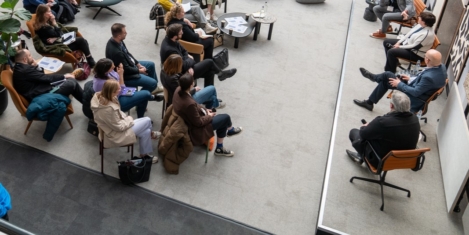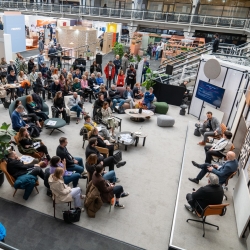To provide the best experiences, we use technologies like cookies to store and/or access device information. Consenting to these technologies will allow us to process data such as browsing behaviour or unique IDs on this site. Not consenting or withdrawing consent, may adversely affect certain features and functions.
The technical storage or access is strictly necessary for the legitimate purpose of enabling the use of a specific service explicitly requested by the subscriber or user, or for the sole purpose of carrying out the transmission of a communication over an electronic communications network.
The technical storage or access is necessary for the legitimate purpose of storing preferences that are not requested by the subscriber or user.
The technical storage or access that is used exclusively for statistical purposes.
The technical storage or access that is used exclusively for anonymous statistical purposes. Without a subpoena, voluntary compliance on the part of your Internet Service Provider, or additional records from a third party, information stored or retrieved for this purpose alone cannot usually be used to identify you.
The technical storage or access is required to create user profiles to send advertising, or to track the user on a website or across several websites for similar marketing purposes.
 The Sustainable Design Collective, a ‘think tank’ group of leading workplace designers and specifiers, has announced a new Forum Day, together with industry awards, focussed on greater sustainability. Originally formed in January 2022, the Sustainable Design Collective hosts regular meetings to collaborate and discuss new opportunities to promote environmental and social responsibility within the office workplace. The group is now inviting conversations with fellow designers as well as suppliers and manufacturers. (more…)
The Sustainable Design Collective, a ‘think tank’ group of leading workplace designers and specifiers, has announced a new Forum Day, together with industry awards, focussed on greater sustainability. Originally formed in January 2022, the Sustainable Design Collective hosts regular meetings to collaborate and discuss new opportunities to promote environmental and social responsibility within the office workplace. The group is now inviting conversations with fellow designers as well as suppliers and manufacturers. (more…)

































March 6, 2023
The six skills managers will need for the future of work
by Lea Kimpele • Comment, Flexible working, Technology